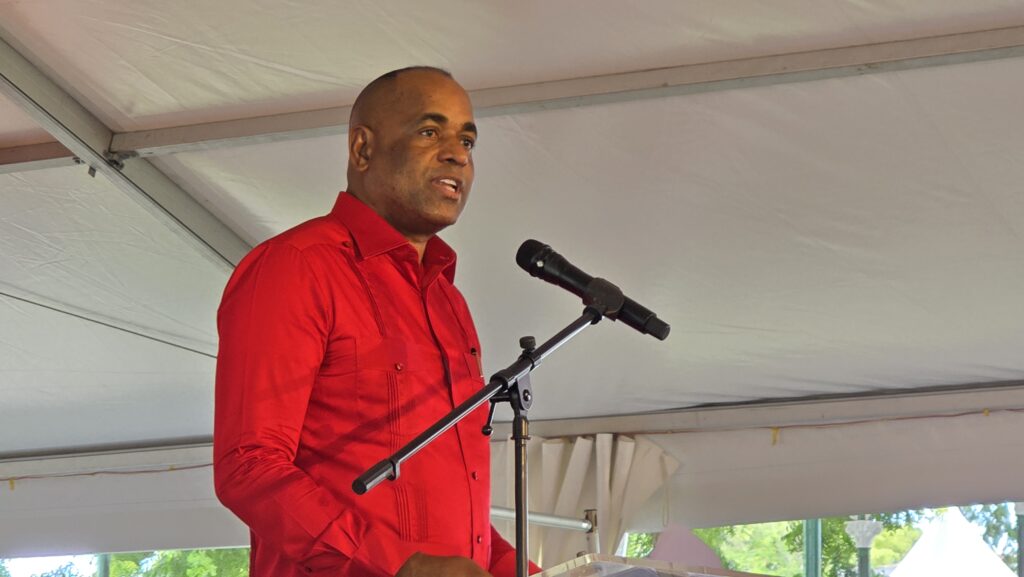The International Monetary Fund (IMF), which has slightly lowered its 2025 growth forecast for Barbados from three per cent to 2.7 per cent, is advising the island and other Caribbean economies to diversify their import sources geographically “as a strategic way to bolster economic resilience over time”.
This advice comes with a warning that “persistent trade policy uncertainty – particularly if it translates into elevated shipping and import costs – can increase inflation and erode the region’s tourism competitiveness, primarily by disrupting supply chains”.
IMF experts are also recommending that Caribbean countries prioritise tax reforms to bolster government revenues and another suggestion is to improve the efficiency of public spending.
“Taken together, these reforms will support a more sustainable public debt trajectory while safeguarding public investment and targeted social protection for the most vulnerable,”the IMF said in its new Regional Economic Outlook for the Western Hemisphere.
The advice for Barbados and other Caribbean countries is shared in an analysis titled The Caribbean: Navigating External Uncertainties with Fiscal Resilience.
Noting that the region was affected by geographic isolation with difficult production and trade logistics and a heavy dependence on imported goods, the IMF assessment said that “so far, high-frequency data through July indicate that import volumes are broadly comparable to 2024 levels, suggesting a still-limited impact of policy changes on the region’s international trade”.
“Nevertheless, persistent trade policy uncertainty – particularly if it translates into elevated shipping and import costs –can increase inflation and erode the region’s tourism competitiveness, primarily by disrupting supply chains,” it stated.
“As a result, diversifying import sources geographically emerges as a strategic way to bolster economic resilience over time.”
The report suggested that Barbados and the rest of the Caribbean should try to navigate external uncertainties by introducing measures to make them more fiscally resilient.
“Global policy uncertainties also underscore the need for stronger policy buffers. Although several Caribbean countries have made notable progress in reducing debt-to-GDP ratios since the pandemic, public debt levels remain elevated, constraining the authorities’ ability to respond effectively to external shocks,” the IMF said.
“Moreover, debt sustainability concerns may limit growth-enhancing investments – particularly in education, health, and infrastructure – which are vital to reversing the region’s decline in potential growth.
“In this context, strengthening fiscal policy frameworks and rebuilding fiscal buffers are critical to safeguard macroeconomic resilience.”
This included improving governments’ tax collection while improving public spending.
The report shared that “IMF staff analysis suggests that the region – excluding Guyana and Haiti – is currently operating approximately 8.5 per cent of GDP below its estimated tax potential, highlighting ample scope for tax revenue mobilisation”.
“Priority reforms could include broadening the tax base, reducing distortionary tax exemptions, and strengthening tax administration capacity,” the IMF advised.
“At the same time, improving public spending efficiency – by streamlining overlapping expenditures and prioritising capital investments – can elevate the quality of fiscal adjustments.”
Similar policy suggestions came during the recent IMF and World Bank annual meetings in Washington, DC from outgoing director of the IMF’s Western Hemisphere Department Rodrigo Valdés.
Speaking during a press briefing, he said that “over the past months, Latin America and the Caribbean have been navigating through shifting winds of a changing and uncertain global environment”.
“Against this background, macroeconomic policy calibration remains a challenge in several countries. While most countries are expected to strengthen their fiscal positions, structural primary balances are projected to be lower than anticipated, indicating unwelcome delays in fiscal consolidation,” he stated.
“In fact, with public debt ratios rising, fiscal consolidation is increasingly important to mitigate risks of decompression in risk premiums. Insufficient fiscal effort complicates not only debt sustainability but also the effectiveness of monetary policy.”
Valdes added that “on the monetary policy front, inflation remains above target in some countries, amid relatively balanced risks. While robust labour markets and fiscal concerns slow disinflation, recent exchange rate appreciation is helping in some cases”.
“Looking ahead, the region’s potential growth remains stuck in its low historical average and lagging its peers. This reflects slowing labour force expansion, low capital accumulation, and stagnant productivity,” he said.
The IMF Regional Economic Outlook said that excluding Guyana and Haiti, the Caribbean’s best and worst performing economies, regional economic growth “is projected to rise to 1.9 per cent in 2025, after a slight easing in 2024 following the strong post-pandemic recovery”.
Tourism-dependent islands like Barbados “are expected to experience broadly stable growth – supported by expanding tourism capacity, increased construction activity, and a rebound from the storm-related slowdown” this year.
However, the IMF report added: “Risks to growth are tilted to the downside, whereas inflation is subject to upside risks. For tourism-dependent countries, key risks include a potential slowdown in major tourism source markets, particularly the United States.” (SC)
The post Trade uncertainty threatens economy appeared first on nationnews.com.


